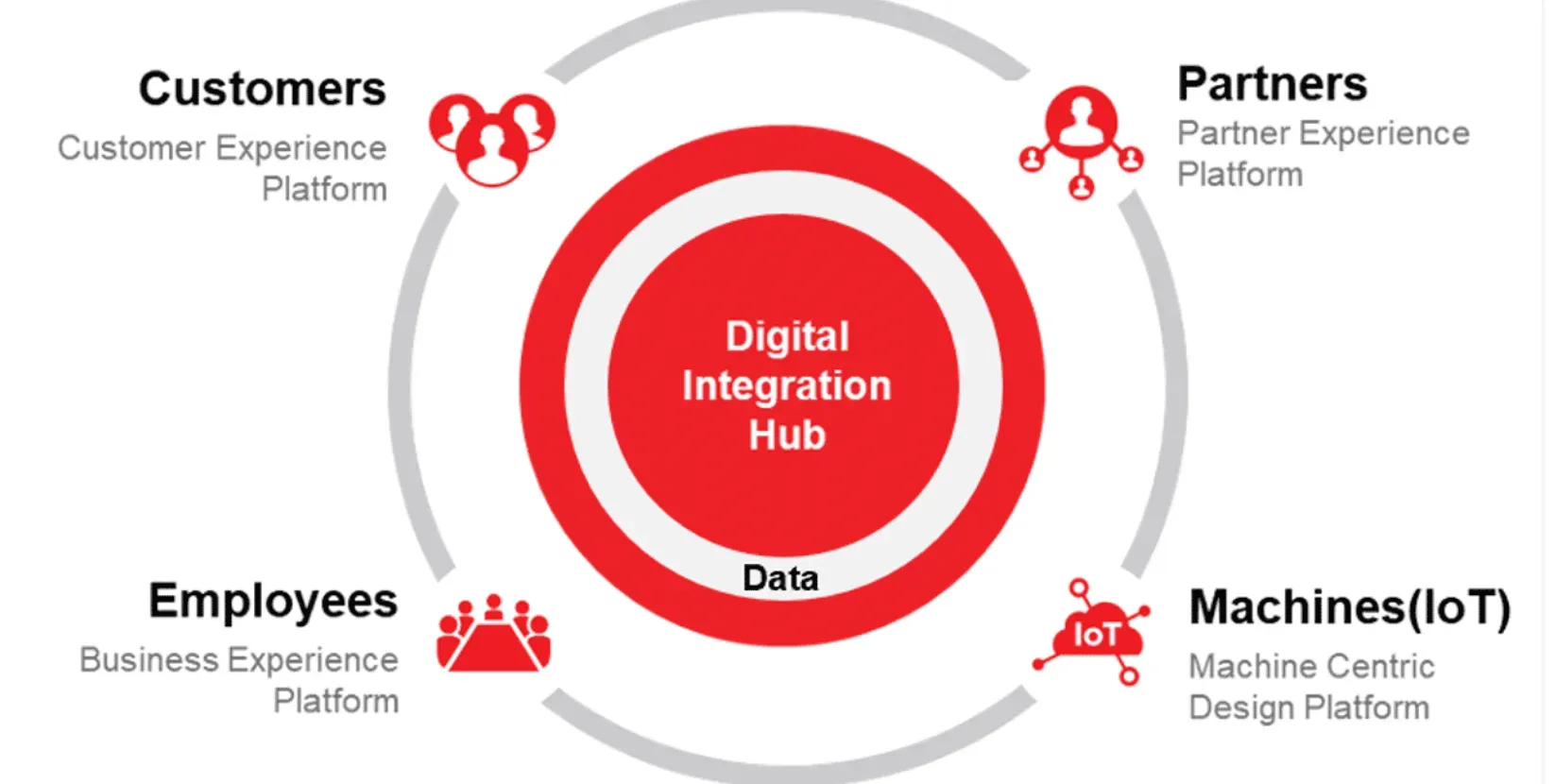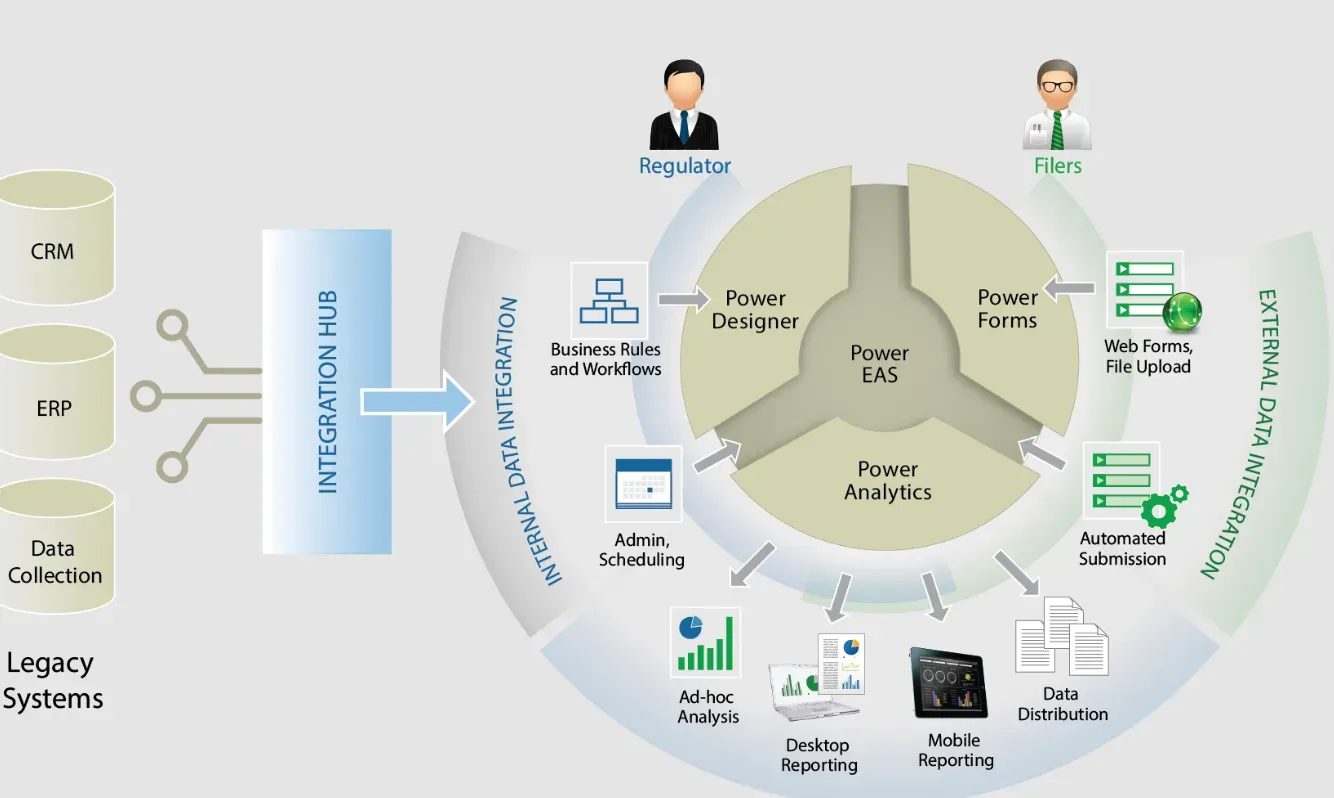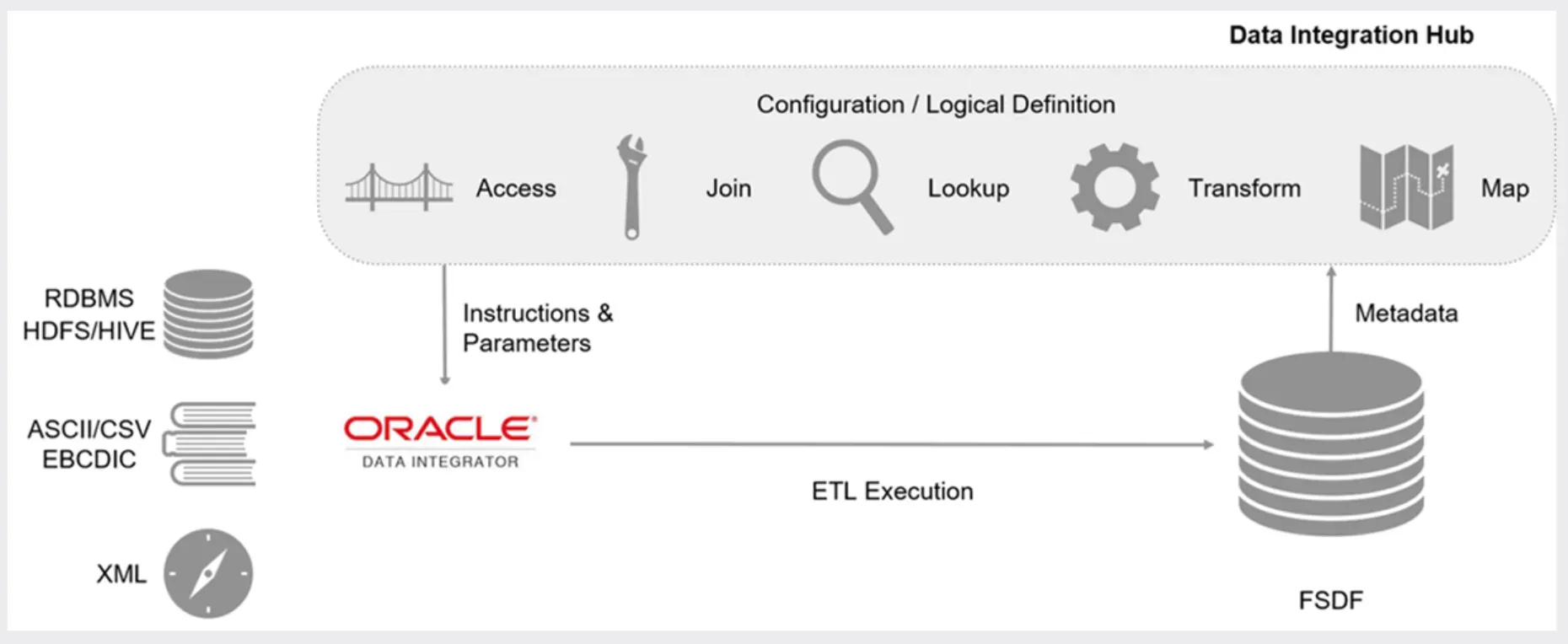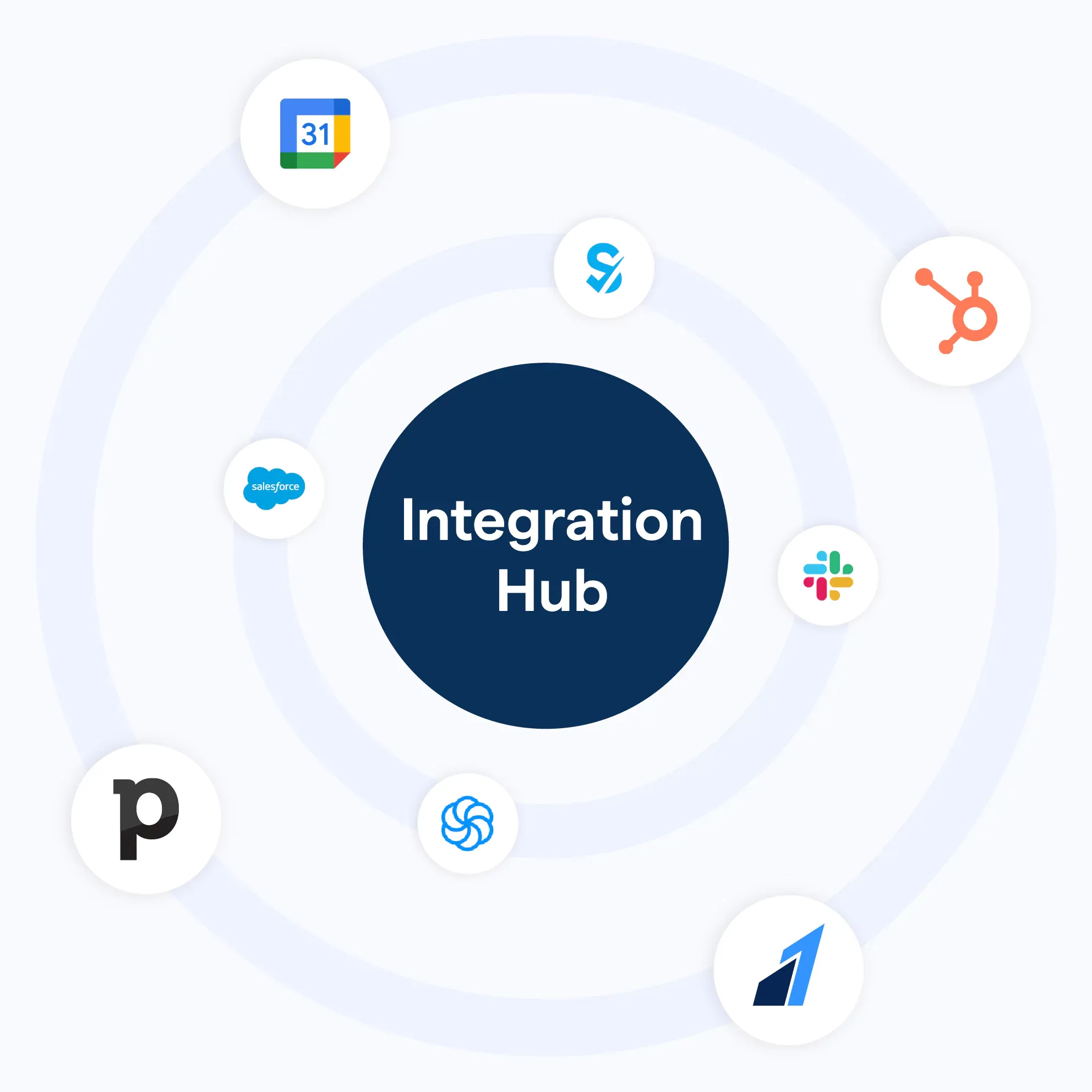What is an Integration Hub?
Alright, think of an Integration Hub as a bustling airport terminal where flights (in this case, data) from various cities (systems, apps, etc.) land and take off. It’s a central point that allows different software and services to communicate and exchange information. Pretty neat, huh?
The Concept
An Integration Hub is designed to streamline processes, reduce complexity, and improve data quality by allowing different applications to communicate seamlessly.
Why It’s Needed
In a world where businesses use a plethora of tools for different functions, integration hubs help prevent information silos and ensure that data flows freely across the ecosystem.
Core Functions
It connects, transforms, routes, and ensures the consistent delivery of data between systems. This could range from simple point-to-point integration to complex orchestration of multiple services.
Key Benefits
Efficiency, increased productivity, and the ability to leverage data across different platforms in real time are among the top benefits.
Common Features
Look for features like pre-built connectors, data transformation tools, a user-friendly interface, and robust security measures in a typical Integration Hub.
Why Use an Integration Hub?
“So, why can’t I just manually make my apps talk to each other?” Great question! Let’s shed some light on the need for Integration Hubs.
Simplification
Connecting each application directly with every other application you use is like trying to wire every electrical device directly to the power station. Integration Hubs simplify this by being the power strip that neatly connects everything.
Efficiency
No need to switch back and forth between applications or manage multiple integrations. An Integration Hub does the heavy lifting, freeing your team to focus on what they do best.
Scalability
As your business grows, so does your tech stack. Integration Hubs can scale with your business, making adding new applications or services a breeze.
Real-time Data Sharing
In today’s fast-paced world, having access to real-time data across platforms can be a game changer for making informed decisions.
Improved Data Quality
By acting as the central point for data flow, Integration Hubs reduce errors and ensure consistency across platforms.
How Does an Integration Hub Work?
Let’s get a bit technical—but don’t worry, I’ll keep it simple.
Connection Points
Think of these as the gates at our airport terminal, where data lands and takes off. Integration Hubs offer various connection points to different systems and applications.
Data Transformation
Sometimes data from one app needs a little tweak to be understood by another. Integration Hubs can automatically transform data into the right format.
Routing Logic
Based on predefined rules, the hub decides where and how data should be sent, ensuring it reaches its destination correctly.
Orchestration
Some processes involve multiple steps and applications. Integration Hubs can manage these workflows, making sure each step is executed in the correct sequence.
Monitoring and Management
Keeping an eye on all data traffic is essential. Integration Hubs come equipped with tools to monitor flows, manage errors, and sometimes even recover lost data.
Who Uses Integration Hubs?
You might be wondering, “Is an Integration Hub right for me or my business?” Let’s look at who typically benefits from them.

Enterprises
Large organizations with complex systems sprawling across different departments find immense value in using Integration Hubs to streamline operations.
SMBs
Small to medium-sized businesses looking to scale and integrate more digital tools into their operations can leverage Integration Hubs for growth.
IT Departments
Those folks responsible for maintaining the tech stack appreciate the simplicity and efficiency Integration Hubs bring to their workflows.
Developers
Yes, the coders find Integration Hubs beneficial too! It saves them from having to write custom integrations for every new tool or service.
Project Managers
With everything integrated and information flowing smoothly, project managers can ensure projects stay on track and within budget.
When to Consider an Integration Hub
Timing is everything, they say. Let’s discuss when it might be the right time to bring an Integration Hub into your ecosystem.
When Scaling Your Business
As you grow, so does your need for more applications and services. An Integration Hub can help integrate these new tools seamlessly.
During Digital Transformation Initiatives
If your business is looking to digitize operations, an Integration Hub can ensure that all your digital tools work in concert.
If You’re Experiencing Data Silos
When information gets trapped in one application and isn’t shared across the organization, an Integration Hub can break down these barriers.
To Improve Operational Efficiency
If manual processes are slowing down your business, automate and streamline these workflows with an Integration Hub.
When Data Consistency Becomes a Concern
To maintain the integrity and quality of your data across platforms, consider implementing an Integration Hub.
Best Practices for Implementing an Integration Hub
Okay, you’re convinced. But before jumping in, let’s talk about some best practices to keep in mind.

Start with a Strategy
Understand what you’re trying to achieve. Map out your processes and identify where integrations can bring the most value.
Choose the Right Hub
Not all Integration Hubs are created equal. Assess your needs and choose one that aligns with your business goals and tech stack.
Plan for Growth
Think long-term. Opt for a solution that scales with your business and can accommodate future applications and services.
Focus on Security
Integration means data is being shared across applications. Ensure your Integration Hub has robust security measures in place.
Invest in Training
Make sure your team knows how to get the most out of your Integration Hub. Investing in training upfront can save you headaches down the road.
Challenges to Anticipate
Even with all its benefits, integrating an Integration Hub isn’t always a walk in the park. Here’s what you might face.
Technical Complexity
Depending on your tech stack and the Integration Hub you choose, setup and maintenance can get a bit technical.
Change Management
Introducing a new system into your operations requires buy-in from your team and potentially changing how they work.
Integration Limits
Not all Integration Hubs will connect with every application out there. Be prepared to evaluate your essential connections.
Ongoing Maintenance
Like any system, Integration Hubs require regular updates and maintenance to ensure they’re running smoothly.
Cost Considerations
Weigh the initial and ongoing costs against the benefits to ensure it makes financial sense for your business.
Emerging Trends in Integration
As technology evolves, so do the ways we integrate our tools. Here’s a sneak peek into the future of Integration Hubs.

AI and Automation
Integration Hubs are becoming smarter, using AI to automate data flows and even predict integration needs.
Cloud-Native Solutions
As businesses move to the cloud, Integration Hubs are following suit, offering flexible, scalable cloud-native options.
Increased Focus on Security
In our data-driven world, security is becoming a top priority. Expect to see more advanced security features in future Integration Hubs.
Industry-Specific Hubs
Tailored integration solutions designed to meet the specific needs of industries like healthcare, finance, and retail are on the rise.
Enhanced User Experiences
Integration shouldn’t be just a behind-the-scenes process. Modern Integration Hubs focus on user-friendly interfaces and simplified management tools.
Frequently Asked Questions (FAQs)
How does an integration hub simplify data management?
An Integration Hub centralizes data integration tasks, simplifying management by providing a unified platform for connecting disparate systems and data sources.
Can integration hubs support real-time data processing?
Yes, most modern Integration Hubs are designed to support real-time data processing, enabling immediate data syncing across platforms.
What is the role of APIs in an integration hub?
APIs play a crucial role in an Integration Hub, acting as the connective tissue that allows different software systems to communicate seamlessly.
How do integration hubs enhance data security?
Integration Hubs often have built-in security features, such as encryption and access controls, ensuring that data remains secure during transfer and storage.
What are the main benefits of using an integration hub for businesses?
Using an Integration Hub can lead to increased efficiency, reduced IT complexities, improved data quality, and enhanced decision-making capabilities for businesses.


